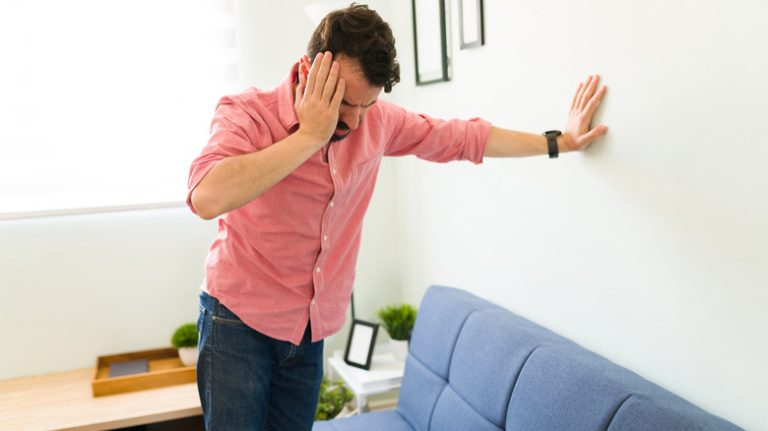There are many things going on in the world at any moment that can cause you to feel anxious. These kinds of circumstances, along with the stressors going on in your own life, can raise your anxiety to uncomfortable levels. So, what can you do about it?
Health experts across the wellness spectrum suggest a variety of methods to ease anxiety, such as taking walks, getting in bursts of activity, deep breathing, and meditation, among others. There are also medications that your doctor can prescribe (via WebMD).
If you’ve tried those various options and none are as effective as you would like, another option you may want to try is melatonin. According to health experts at the National Institutes of Health, melatonin “is a hormone that your brain produces in response to darkness. It helps with the timing of your circadian rhythms (24-hour internal clock) and with sleep.” They go on to say that melatonin supplements, which are typically produced synthetically and can be bought over the counter, may be helpful in alleviating certain health conditions related to temporary anxiety-provoking events, such as jet lag, certain sleep issues, and anxiety before and after surgeries.
How effective is melatonin in alleviating anxiety disorders?

According to the experts at Livestrong, one in five Americans will experience some form of anxiety disorder in their lifetime. Anxiety disorders are more a constant experience of anxiety and are typically acute enough to disrupt daytime functioning and sleep patterns. The experts at Cleveland Clinic report that there are different types of anxiety disorders. These include generalized anxiety — a feeling of extreme worry or tension over small issues — as well as panic disorders and phobias, among others. Research has shown that melatonin can potentially reduce the effects of anxiety disorders in certain settings.
Most melatonin-related research on humans, however, has studied melatonin’s effects on anxiety specifically experienced prior to surgery. In a 2024 study published by Anesthesia Essays and Researches, it was determined that oral melatonin worked nearly as well as small doses of alprazolam — commonly known as Xanax — to reduce anxiety.
According to the experts at Healthline, there is still no consensus on an optimal dose of melatonin, but clinical studies suggest taking somewhere between 3 to 10 milligrams just before bedtime to experience the greatest benefits. Higher doses have not been shown to be more effective. Experts also strongly suggest that when choosing a melatonin supplement that you select high-quality manufacturers that have a seal of approval from United States Pharmacopeia.
You should know that, while taking melatonin does not generally cause side effects, it’s possible you may experience certain discomforts, such as headaches, dizziness, nausea, or other symptoms.
Before taking melatonin for anxiety, you should speak to your doctor to identify the underlying cause, and whether it is related to a temporary situation or if you are suffering from a more serious anxiety disorder, to determine if taking melatonin is a safe and effective way to address your issue.


